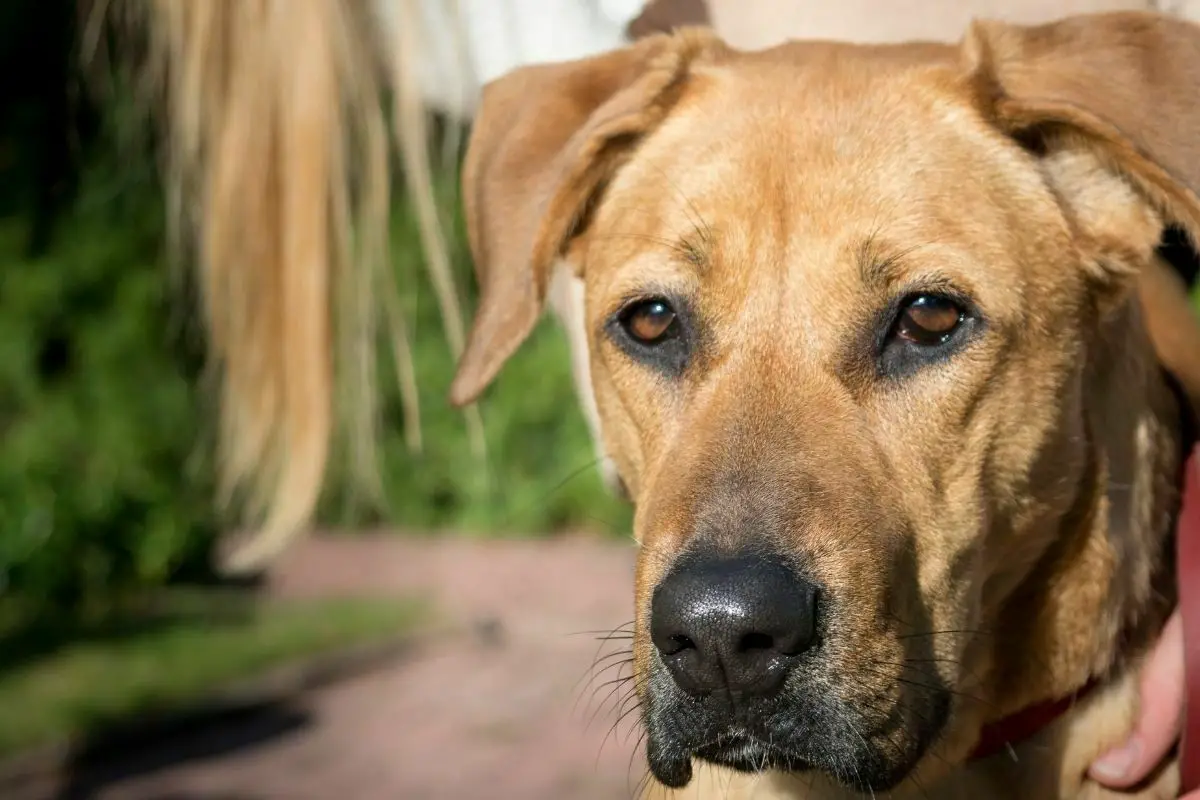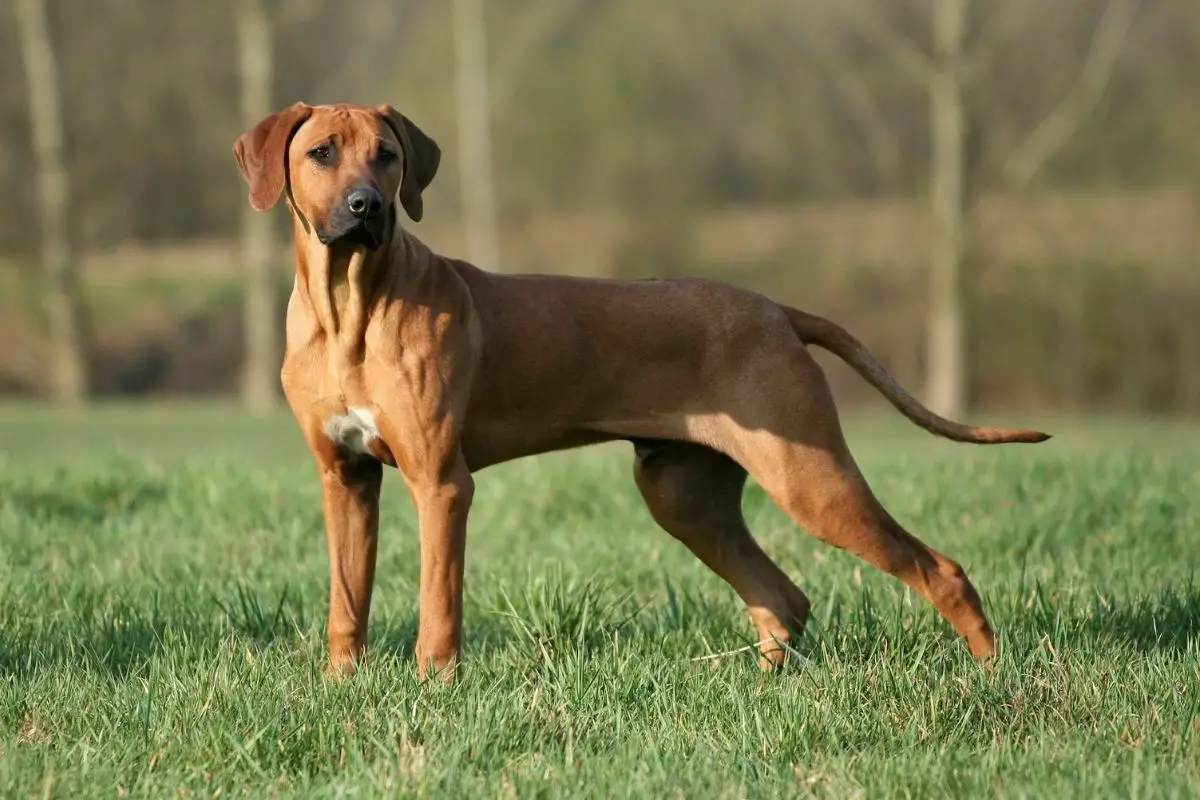Do you suffer from allergies triggered by dogs and other animals? If you want to keep dander and other allergens at bay while also ensuring that you are able to own your very own dog – then you should consider buying a hypoallergenic dog.
Rhodesian ridgebacks are a breed of dog that is known for being extremely kind-natured and loyal to a fault, which makes them a great option for anyone that is looking for the perfect family dog to add to their household.

The only question is, are they a hypoallergenic breed of dog?
If you are currently asking yourself this question, then rest assured you have come to the right place.
In this article, not only are we going to be taking a closer look at whether Rhodesian Ridgebacks are hypoallergenic or not, but we are also going to be providing you with some helpful insights into what sets a hypoallergenic dog apart from the rest. So, whenever you’re ready, let’s jump right in!
What are Hypoallergenic Dogs?
Hypoallergenic dogs are those which do not cause allergic reactions in people with certain conditions such as asthma, hay fever, eczema, and other respiratory issues.
It’s important to keep in mind that no dog is 100% hypoallergenic. However, there are some breeds that are more likely to cause allergies than others.
For example, pugs, Shih Tzus, chihuahuas, dachshunds, cockers spaniels, bichon frises are all breeds of dogs that are known to be officially classed as hypoallergenic – which means that they have a much lower chance of causing an allergic reaction in someone who is sensitive to animals than other breeds of dog.
Still, as we have already touched upon above, there is no dog that can be 100% hypoallergenic, because all dogs produce and transmit allergens from their saliva and dandruff.
Nevertheless, there are still some breeds of dog that are less likely to cause your allergies to spike, and they are characterized by the following features that we are going to be talking you through below:
The Main Features of Hypoallergenic Dogs
Lower Levels of Dander
The biggest distinguishing feature from hypoallergenic dogs to non-allergenic dogs is that they produce and spread far less dander (the main compound that causes allergic reactions).
Less Shedding
The majority of dogs spread dander and other allergens through the fur and hair that they shed throughout the home, which is why hypoallergenic dogs do not typically tend to shed much hair/fur. When looking for a dog that will be suitable for you, it’s important to always opt for a dog that isn’t going to spread fur around the home.
Fewer Allergy Triggers
Just like we have already mentioned above, as hypoallergenic dogs produce far fewer allergens than other dogs, it means that one of their biggest features is that they are far less likely to trigger an allergic reaction.
Smaller Size
Last but certainly not least, the final feature that is typically associated with hypoallergenic dogs is being smaller in size.
For the most part, the majority of hypoallergenic dogs are small-breed dogs because they produce far fewer allergens than other types of dogs.
For this reason, it is very rare to come across a medium or large-breed dog that is classed as being hypoallergenic or far less likely to cause an allergic reaction.
Are Rhodesian Ridgebacks Hypoallergenic?

Now that you have read through the above features that set hypoallergenic dog breeds apart from the rest, you might now be wondering whether or not Rhodesian Ridgebacks make the cut.
To cut a long story short, despite their short coats, Rhodesian Ridgeback is not officially classed as being hypoallergenic.
This is because, despite the fact that they are known for their short coats, Rhodesian Ridgebacks still shed their coat quite frequently, which means that they have a much higher tendency to spread dander and other allergens around than other breeds of dog.
With that being said, if you are very sensitive to animals and prone to allergic reactions from dander, then a Rhodesian Ridgeback might not be the best option for you.
Alongside spreading around dander via shedding their coats, it is also important to keep in mind that Rhodesian Ridgebacks will also spread around allergens (particularly dander) from their saliva and dandruff.
With this being said, if you are prone to allergies and would like to buy a Rhodesian Ridgeback, you will need to make sure that you are absolutely sure that you are making the right decision.
Wrapping Up
So, if you’re interested in adopting a Rhodesian Ridgeback puppy, then it’s important to know that although they may look cute and cuddly, they aren’t necessarily hypoallergenic puppies.
In fact, they are just as likely to cause an allergic response in someone as any other breed of dog. Although they are generally considered to be low-shedding dogs, they do shed quite a bit of hair and fur.
They also don’t tend to be particularly small, so if you’re looking for a small dog, then you should probably avoid them.
Still, if you suffer from allergies and would still like to buy a Rhodesian Ridgeback, then it’s important to note that there are a variety of adjustments you can make to accommodate one.
Lifestyle changes such as taking regular oral histamines and lowering the amount of contact your dog has with you can help to prevent the chances of your allergies being triggered and should allow you to own your very own Rhodesian Ridgeback without any issues.
However, we do recommend that you take some time to consider whether or not this is something that you would like to commit to, as there are a variety of other breeds of dog that are much better suited to those who suffer from allergies.
Thank you for reading, we hope that this article has been of help!
